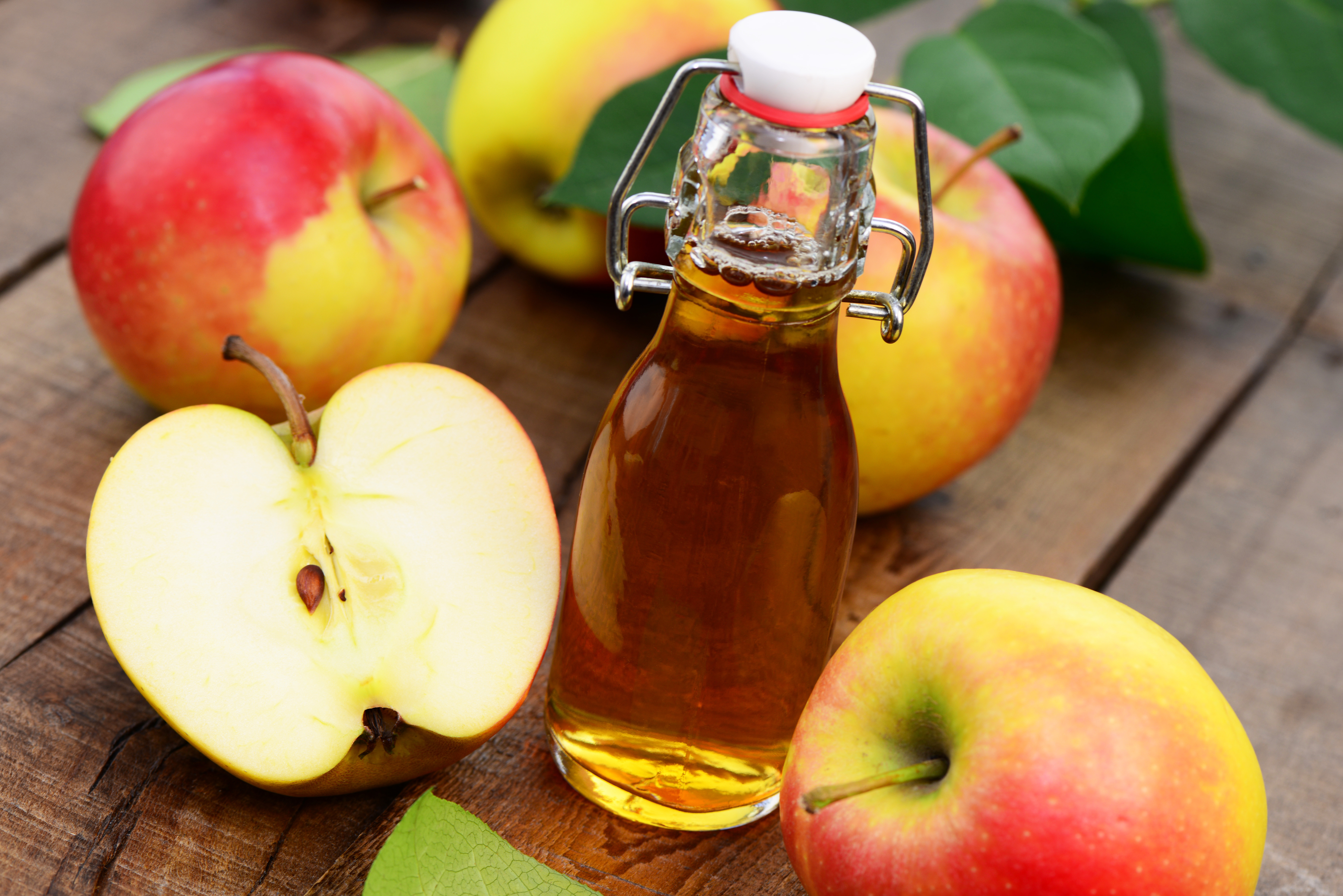You probably have a bottle of apple cider vinegar in your pantry right now. It’s a tasty addition to homemade pickles, marinades, and salad dressing, but is it also good for you?
As a folk remedy, apple cider vinegar has been credited with curing everything from theflu to warts. Many of its supposed benefits are unproven, but some experts think that adding a little of this sour liquid to your life may have some health benefits.
Apple Cider Vinegar and Weight Loss
Have you heard that apple cider vinegar will help you lose weight?
The only study to test the idea in people was done in Japan. In the study, 175 obese but healthy people took either vinegar or water daily for 12 weeks. Their diets were similar. They kept food journals. At the end of the study, those who used vinegar had lost slightly more weight. On average, the vinegar group lost 1-2 pounds over the 3-month period. They gained it all back after the study was over.
The researchers suggest that vinegar may turn on certain genes involved in breaking down fats.
The effect is probably very subtle, says Chicago dietitian Debbie Davis, RD. “It may have some benefits in terms of weight loss and weight management, but it is definitely not a quick fix."
If you want to lose weight, you’ll still need to exercise and practice portion control.
Apple Cider Vinegar and Blood Sugar
While apple cider vinegar probably won’t make you skinny, it does appear to help with diabetes and blood sugar control.
Carol Johnston, PhD, directs Arizona State University’s nutrition program. She has been studying apple cider vinegar for more than 10 years and believes its effects on blood sugar are similar to certain medications.
“Apple cider vinegar’s anti-glycemic effect is very well documented,” Johnston says.
She explains that the vinegar blocks some of the digestion of starch. “It doesn’t block the starch 100%, but it definitely prevents at least some of that starch from being digested and raising your blood sugar,” Johnston says.
Not every expert feels as confident about apple cider vinegar’s power.
"Trying to use vinegar to treat diabetes is like trying to bail out a flooded basement with a teaspoon," says Michael Dansinger, MD, director of Tufts University’s diabetes lifestyle coaching program.
He advises patients to focus instead on their overall diets -- a strategy backed by a lot more research, he says.
If you have gastroparesis, a common problem with diabetes that slows stomach emptying, be careful. Early research shows apple cider vinegar may make this problem worse.
"I’m concerned that drinking vinegar, even diluted in water, increases acid in your system, which puts a strain on your kidneys and bones,” Dansinger says.
If you have diabetes and want to try apple cider vinegar, let your doctor know, and keep an eye on your blood sugar levels.
Johnston stresses that if you are on medication for diabetes, you shouldn’t stop taking it and substitute vinegar. If you're thinking about using it to help manage your blood sugar, talk to your doctor first.
Apple Cider Vinegar and Digestion
If you drink apple cider vinegar with a starchy meal, then the starches you don't digest will feed the good bacteria in your gut, Johnston says.
Davis recommends using unfiltered apple cider vinegar, “the cloudy kind, where you can see a blob in the bottle.”
That blob is known as “the mother,” and it’s full of probiotics and other beneficial bacteria. “This kind of vinegar can support immune function and, for some people, even help with constipation,” Davis says.
Tips on Taking Apple Cider Vinegar
Don't drink it straight. It’s so acidic that it could harm your tooth enamel and your esophagus.
Don't use a lot. “Dilute 1 to 2 tablespoons in a big glass of water, and sip it along with your meals one or two times a day,” Johnston says.
Source
http://www.webmd.com/diet/obesity/apple-cider-vinegar-and-health?page=2
SOURCES:
Carol Johnston, PhD, professor, director, nutrition program, Arizona State University.
Michael Dansinger, MD, founder, director, Tufts Medical Center’s Lifestyle Coaching Program for Diabetes and Weight Loss, Boston.
Debbie Davis, MS, RD, LDN, dietitian, Hines VA Hospital, Chicago; founder, DietitianDebbie.com.
Kondo, T. Journal of Agricultural and Food Chemistry, July 8, 2009.
Budak, N. Journal of Food Science, May 2014.
© 2014 WebMD, LLC. All rights reserved.




No comments:
Post a Comment